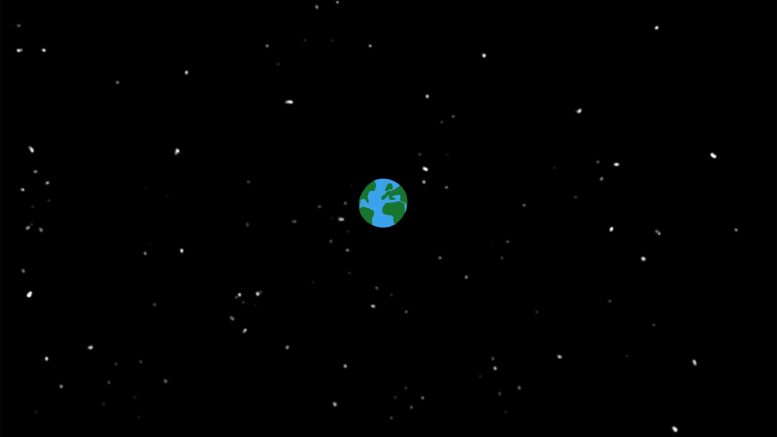I listen to audiobooks about astrophysics while I drive and work out, a deviation from my strict academic-adherence to the Tier building.
The last thing I listened to was Starry Messenger: Cosmic Perspectives on Civilization by Neil deGrasse Tyson, world-renowned astrophysicist.
In his book, deGrasse Tyson takes a step back from Earth and describes what he believes extraterrestrial life would think about the intelligent life on our planet. He tackles topics ranging from race and gender identity to politics and war. The book made two things clear to me — one, we take the wrong things too seriously, and two, the world has too much to work on.
One chapter discusses the predictions that people in the early 1900s made about the 2000s. That got me thinking about what my own predictions for 100 years from now might be. However, I could barely think five years ahead.
I should emphasize that when it comes to the day-to-day, I am quite optimistic. I take things as they come and try to make the best of every situation. It’s only when I think about the future of the world that I am truly pessimistic. With everything going on in the world, I don’t see a very long future for humans.
Before I dive into the numerous things I find wrong with the world, let me remind you that humans have only been living on this planet for a small fraction of the approximately 4.5 billion years that the earth has existed.
If you look through the comment article archive on the Manitoban website or look through any issue of the paper from this year, you may notice that myself and others often write about environmental issues. Climate change and environmental neglect are prominent issues that must be addressed before anything else.
If we don’t take care of our planet, there may not be a suitable place for us to live.
But will there be a place to live, or even people, if the world’s citizens can’t figure out peaceful ways to resolve issues?
It seems like every time I look for updates on the war in Ukraine, it never gets better. There are always more people dead or more cities destroyed. Russian leader Vladimir Putin has stopped participation in the last major nuclear arms treaty with the U.S., and only time will tell what the results of that will be. If that doesn’t make you even a little worried, I don’t know what will.
It’s a scary thought that everything we know could be gone or changed at the push of a button, a thought that our parents and grandparents constantly had during the Cold War.
The Cold War lasted decades, and during much of that time there was constant tension and fear that nuclear war would begin between the Soviet Union and the United States. I feel like, since that time, we should have grown and matured enough as a global society to be able to work issues out diplomatically.
A five-foot-six man has the fate of eastern Europe and even us here in North America in the palm of his hand. Why are we letting misogynistic short men control our quality of life?
Over here in North America, misogynistic men and bigoted women are attempting to take control of politics. Marjorie Taylor Greene, the radical Republican representative from Georgia, has on more than one occasion created and spread misinformation and absurd, dangerous claims and ideas to the general public.
One example of this is her proposal to separate the “red” and “blue” states in the U.S. This may sound familiar to those who paid attention in history class. The U.S. already had one civil war, it doesn’t need another. If Marjorie Taylor Greene needs a reminder of what being divided like that can cause, I’ll send her my eighth grade history project on what life was like for a soldier back in the 1860s.
Alongside Greene are characters like Andrew Tate, Tucker Carlson, Lauren Boebert, Jordan Peterson and Matt Walsh, all of whom regurgitate misogynistic and transphobic ideas and policies that create a hostile environment for marginalized groups.
Here’s the thing, though. Making the world a safe and welcoming space for every person of every identity is important and shouldn’t be as difficult as it is proving to be. But there are issues that are much more pressing that, from my perspective, are often ignored.
Across the globe in countries both wealthy and poor, nearly 830 million people are facing food insecurity, unsure of where their next meal will come from. Why isn’t that plastered across social media?
Or what about access to health care, ensuring that medical care can be provided to people when they need it?
There is also the issue of being able to provide everyone with homes. It seems like there are more people than space, and to get more space the solution for some is to destroy the habitats of the wildlife that is much more important to the planet’s health than we acknowledge.
What is the point of imagining a future earth when everything seems like it’s hitting the fan? There are issues to tackle that affect regular people like you and me before we can tackle the future’s problems. The only issue is having enough time to do so.
In the end, we are all just small organisms floating on a small rock in the vastness of a universe we don’t even know the full scale of. There was a time before us and there will be a time after us. And in between, the problems we face seem big and life altering when really, it’s not that deep.


